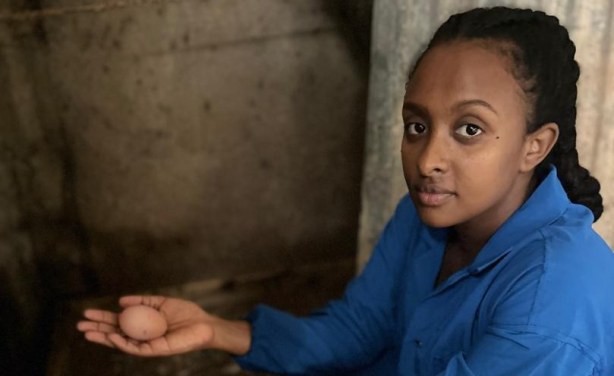The Mastercard Foundation, in partnership with Kifiya Financial Technology PLC (Kifiya), announces a scale-up program designed to unlock resources from banks, innovate new financial models and products, and transition the financial sector to enable access to uncollateralized financial credit products to a greater number of MSMEs. A budget of US $100 million is committed to the program.
The Sustainable Access to Finance to Enable Entrepreneurship (SAFEE) program incorporated learnings from Michu, a successful large-scale pilot by the Cooperative Bank of Oromia, Kifiya, and the Mastercard Foundation. This collaboration enabled more than 148,000 MSMEs to access uncollateralized working capital credit in just 14 months.
SAFEE will unlock US$300 million from six banks and enable more than 477,800 micro, small, and medium enterprises (MSMEs) to access relevant and appropriate uncollateralized digital credit products and will enable 425,000 young women to access mobile device financing.
The program will serve program participants of current and future Foundation programs by unlocking access to uncollateralized working and productive digital credit. The credit is in the form of nano, micro, and small working capital, inventory credit, invoice financing, equipment financing, and buy-now-pay-later products for MSMEs in urban, peri-urban, and rural areas of Ethiopia.
Over a period of five years, the program will directly drive the creation of job opportunities for 2.18 million young people (80 percent women) and support other programs to enable 3.65 million young people to access credit. The program will focus on supporting vulnerable young people who are traditionally excluded from accessing financial products, including women, persons with disabilities, refugees, and Internally Displaced People (IDPs).
The program is designed to propel supply-side system-level change while addressing demand-side challenges that have traditionally constrained MSMEs’ access to uncollateralized financial services. It does this by addressing the lack of credit history and records, availability of appropriate products and services, low use of financial technology and the cost of managing low-value credit. It also provides the technical assistance required for financial institutions to transition from conventional collateral-based lending to uncollateralized, digitally enabled, credit-score-based lending, and embracing new modality of delivery of financial services.



No Comment Found.